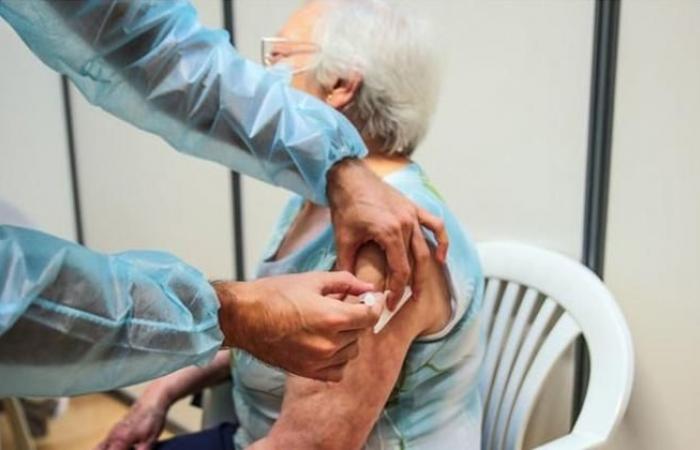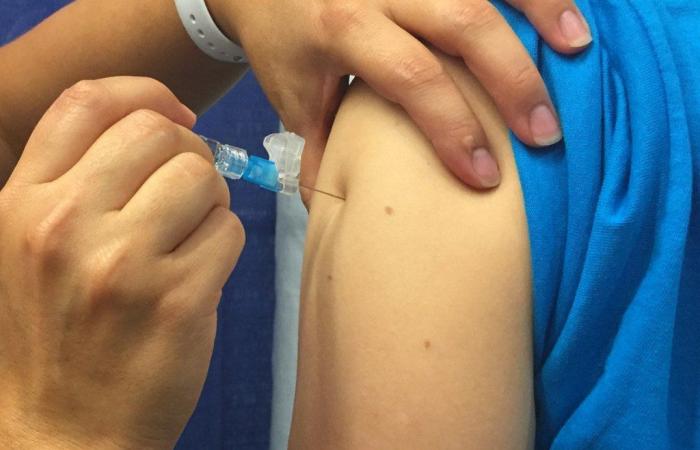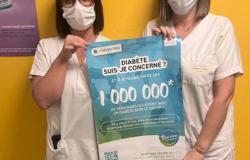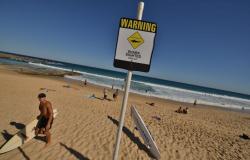According to the WHO, coronaviruses such as Covid-19, influenza and respiratory syncytial virus (RSV) “must be taken seriously”, as they are particularly dangerous for at-risk groups, including the elderly, women pregnant and people suffering from an existing or chronic illness.
“Collective amnesia regarding Covid-19 has set in, which is worrying,” said Dr Hans Kluge, WHO Regional Director for Europe. “Individuals, communities and countries rightly want to turn the page on the trauma of the pandemic years. However, Covid-19 is still very present, circulating with other respiratory viruses.”
Vaccination against Covid-19 in Moldova.
Spotlight on Europe
The WHO official noted that 53 countries in Europe and Central Asia still experience up to 72,000 deaths from seasonal flu, accounting for about 20% of the global burden.
“The vast majority of these deaths are preventable,” he said, adding that the most vulnerable people “must be protected” through vaccination, which is proven to prevent illness and serious outcomes.
Covid-19 has devastated every corner of the planet
In the 28 days to September 22, health authorities in the WHO European region reported just over 278,000 cases of the novel coronavirus and 748 deaths, from Cyprus to Moldova and from Ireland to Russia. These figures are higher than those of all other WHO regions and are probably underestimated, argued the European branch of the United Nations World Health Agency.
According to WHO data, Covid-19 has killed more than seven million people since the outbreak began in late 2019, with most deaths reported in the United States (1.2 million), Brazil (702,000), India (534,000) and Russia (403,000).
Unpredictable pathogens
“Covid-19 has devastated every corner of the planet,” said Dr. Kluge.
“Mpox clade II appeared unexpectedly in Europe in 2022 and continues to circulate in the region, even as Mpox clade I in central and eastern Africa has triggered a public health emergency of international concern. Respiratory syncytial virus (RSV) and influenza will continue to co-circulate with increased intensity in the coming months, particularly as more people gather indoors due to colder weather. he insisted.
In this fight against “unpredictable pathogens”, national health authorities should fulfill their role in protecting vulnerable populations, continued the senior WHO official, who called for increased investment in public health care to protect overburdened healthcare professionals.
New and existing viruses can “wreak havoc on health systems, economies and society”, Dr Kluge warned, calling for regular and consistent surveillance and monitoring to “ensure we are prepared to facing the next major health emergency, whenever or wherever it occurs.”
A seasonal flu vaccine is administered.
The WHO/Europe campaign’s call to action
As part of a WHO Europe public health campaign to prevent the spread of influenza and other respiratory illnesses, WHO has reiterated that the main protective measures are to stay at home if sick , practice hand and cough hygiene and ensure good ventilation.
Vulnerable populations, which also include people with weakened immune systems and anyone who thinks they have caught a respiratory virus, should wear a tight-fitting mask in crowded or enclosed spaces, WHO added.
“Protection against respiratory viruses is a responsibility shared by governments and all of society,” said WHO’s Dr Kluge. “Everyone must play their part in encouraging a culture of care and solidarity with vulnerable people.”
“This year’s campaign, ‘No one knows your risk better than you,’ encourages individuals to assess their personal risks and have confidence in their ability to make responsible choices for themselves and their communities,” explains for her part, Cristiana Salvi, regional advisor for risk communication and infodemic management at WHO/Europe.







